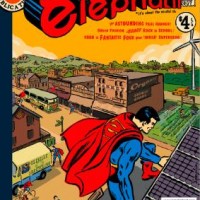This summer, vegan celebrities Alanis Morissette and Woody Harrelson started an environmentally friendly clothing line focused on reuse of discarded materials. The line, called ReCo Jeans, utilized unused fabric scraps by blending the pieces into a pulp for prefabrication of denim fibers. Natural indigo was then used to dye the fabric to give the pants a classic denim look. The denim designs and cuts were tastefully modern with styles ranging from trouser to skinny for women and slouchy for men. ReCo Jeans’ differentiating factor from other organic denim powerhouses, such as Loomstate and Edun, was its unusual pricing strategy.
The emergence of premium denim has sparked a pricing war spurred by social pressure for unique goods. Within the last decade, the classic five-pocket jean was eagerly ignored in favor of denim boasting unusual features such as distressing or distinct back-pocket design. With prices starting around $100 and extending as high as $350, denim fanatics justified expensive purchases based on the uniqueness of the pants. Additionally, organic brands such as Edun and Loomstate kept pace with the premium denim market by offering organic denim with classic five-pocket silhouettes. The use of organic materials appeal to consumers because it is an immediate reflection of a consumers desire to appear environmentally aware and an alternative display of uniqueness as compared to other, non-organic denim brands.
Unlike other denim competitors, ReCo Jeans entered the market as an un-priced commodity. Rather than set a price for consumers to compare to other organic lines, ReCo Jeans held a month-long blind auction allowing consumers to name their own price. The winner would be randomly selected and asked to pay the bid average even if their actual bid was different. The auction ran from early June until late July and produced some very interesting results. Although the jeans could theoretically cost the winner $1, auctioneers placed blind bids as high as $350. This pricing trend was true of every style of jeans, including the 900-1000 people bidding on the men’s and women’s denim, producing averages around $100.
The pricing of ReCo Jeans demonstrates a direct relationship with customers, with a definitive confidence that consumers would pay an inflated price for a chance of owning an exclusive item. Because ReCo Jeans piggybacked off of the current denim craze, the pricing strategy was an effective way to gain valuable publicity and consumer support. Additionally, ReCo Jeans effectively accessed the consumer spending psychology by offering only a limited number of consumer priced denim to enhance the brands uniqueness and appeal. Because they allowed consumers to price the goods, ReCo allowed potential consumers to become part of the organic textile movement by providing feedback regarding the perceived worth of the clothing. The perceived value provides valuable insight to what consumers are willing to pay for unique goods and reflects positively on purchases made in the name of environmental conservation.
Via Elise Ertel






Read 0 comments and reply